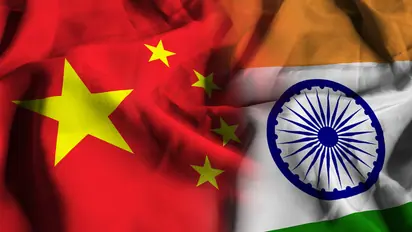India, China discuss resumption of Kailash Mansarovar Yatra for Indians

Synopsis
India and China agree to resume Kailash Mansarovar Yatra, data sharing on trans-border rivers, direct flights, and media exchanges after disengagement from two friction points. Foreign ministers S Jaishankar and Wang Yi met at the G20 summit and discussed stabilizing ties and managing differences.
A month after the two countries announced to disengage from two pending friction points — Demchok and Depsang, India and China on Tuesday decide to resume Kailash Mansarovar Yatra, data sharing in trans-border rivers, direct flights and media exchanges.
On the sidelines of the G20 Leaders’ Summit at Brazil, the foreign ministers of both countries— S Jaishankar and Wang Yi met at Rio de Janeiro and held bilateral talks, wherein they recognised that the disengagement in the border areas had contributed to the maintenance of peace and tranquility.
During their meeting, the two ministers’ discussions were focused on the next steps in India-China relations. “It was agreed that a meeting of the Special Representatives and of the Foreign Secretary-Vice Minister mechanism will take place soon,” an official said.
In a statement, India’s foreign ministry said that the two sides held discussion on the “resumption of the Kailash Mansarovar Yatra pilgrimage, data sharing on trans-border rivers, direct flights between India and China and media exchanges.”
On the global situation and international issues, Jaishankar said that New Delhi and Beijing “have differences and convergences.” “We have worked constructively in the BRICS and the SCO framework. Our cooperation in the G20 has also been evident,” Jaishankar said.
“We are strongly committed to a multipolar world, including a multipolar Asia. Where India is concerned, its foreign policy has been principled and consistent, marked by independent thought and action. We are against unilateral approaches to establish dominance. India does not view its relationships through the prism of other nations,” Jaishankar added.
Wang Yi concurred with his Indian counterpart that India-China relations have particular salience in world politics.
“He noted that our leaders had agreed in Kazan on the way forward. The two Ministers felt that it was imperative that the focus should be on stabilizing ties, managing differences and taking the next steps,” an official said.
What is Mansarovar Yatra issue?
In the wake of Covid-19 outbreak worldwide, China blocked both the official routes for the holy Kailash-Mansarovar pilgrimage for Indians since 2020. It is the fifth consecutive year. However, Beijing reopened the private route through Nepal last year but that is practically unavailable to Indians. In 2013 and 2014, New Delhi inked two agreements to open two official routes for Indian pilgrims. The routes were Lipulekh Pass and Nathu La Pass for Kailash Mansarovar Yatra. The third route is from Nepal through private operators, which was reopened last year but was practically impossible due to stringent rules for foreigners, especially Indians. They imposed multiple restrictions, including hiking the fee.
Stay updated with the Breaking News Today and Latest News from across India and around the world. Get real-time updates, in-depth analysis, and comprehensive coverage of India News, World News, Indian Defence News, Kerala News, and Karnataka News. From politics to current affairs, follow every major story as it unfolds. Get real-time updates from IMD on major cities weather forecasts, including Rain alerts, Cyclone warnings, and temperature trends. Download the Asianet News Official App from the Android Play Store and iPhone App Store for accurate and timely news updates anytime, anywhere.